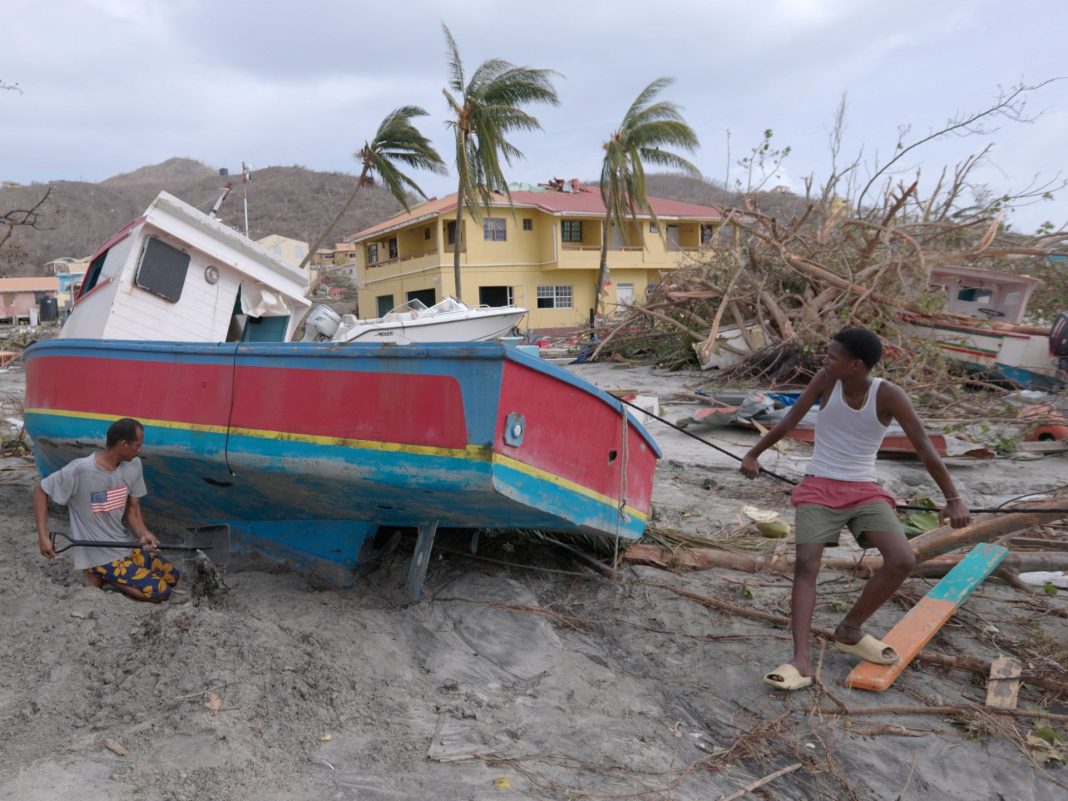A few days after the UN Climate Change Conference in Baku concluded, I reflected on the consequences of Hurricane Beryl ripping through the Caribbean five months ago. In its wake, Grenada, which was left devastated, triggered a hurricane clause allowing it to pause debt servicing for a few years.
This provided much-needed liquidity at a scale, pace and lower interest rates than any other instrument.
These clauses are a necessary antidote to retreating insurers as hurricanes become more frequent and devastating due to climate change. Ultimately, the saved debt service will have to be paid back, not at emergency rates and at a later, better time, but it is not free.
Developing countries particularly vulnerable to climate change, and which bear little responsibility for it, are paying more than $100bn in climate-related loss and damage per year and sinking under oceans of debt before the sea levels rise. But who else would pay?
How could any international scheme to raise contributions from those more able to pay and responsible for climate change be enforced? Wouldn’t consumers or producers baulk at the cost, making it politically impossible? Electorates increasingly vote for politicians who want to erect walls against foreigners, not fund them.
We have been led to believe that international levies to fund loss and damage are the pipe dreams of idealists. But this is an erroneous version of history. An exciting part of that history is when, on docking in Singapore in July 1967, the crew of oil tanker Lake Palourde let onboard Anthony O’Connor, a young lawyer from the firm of Drew & Napier, believing he was an Irish whiskey salesman. O’Connor then pinned a writ from the United Kingdom government to the mast seeking compensation for the damage caused when the Lake Palourde’s sister ship, the Torrey Canyon, ran aground on Pollard Rock near Land’s End, Cornwall in the UK, on March 18, 1967.
The Torrey Canyon disaster is etched in the memories of those over 60. It was the first supertanker disaster. The spilling of more than 100 million litres (26.4 million gallons) of crude oil created an oil slick measuring 700 square km (270 square miles), contaminating 270km (170 miles) of coastland on both sides of the English Channel and killing tens of thousands of sea birds. The disaster was compounded by an almost comical effort by the UK air force to bomb the ship and clean up the spill using highly toxic detergents.
But what will astound the cynics and those who waited 30 years after the Earth Summit in Rio de Janeiro for the new Fund for Responding to Loss and Damage is that the international community swung into action with alacrity when black tides washed up on the white beaches of Cornwall and Brittany.
We had the International Convention on Civil Liability for Oil Pollution Damage (CLC) within two years, forming the framework for the International Maritime Organization’s Pollution Compensation Fund. Every purchaser of shipped oil has paid the Fund whenever a spill occurs, compensating victims of more than 150 spills since 1978.
The United States Oil Spill Liability Trust Fund is even bigger. It raises nine cents on every barrel of oil produced in or imported into the US. The Fund now has $8bn. This 0.1 percent levy goes unnoticed by consumers and producers in the face of swings in the price for a barrel of oil more than 5 percent every month.
Greenhouse gas emissions into the atmosphere are an equally dangerous form of pollution. Last year, at its annual general meeting, members of the International Maritime Organization committed themselves to the early decarbonisation of the sector. But that does not go far enough.
The oil, gas and coal sectors are responsible for about half of current greenhouse gas emissions, and the high-emission products of agriculture, industrial, and manufacturing sectors contribute most of the rest. All are shipped. Almost 90 percent of the $25 trillion of goods transported yearly go by sea.
Ministers will need to take the lead as the shipping industry is unlikely to levy its customers itself. Still, just a 0.2 percent levy on the value of fossil fuels and goods transported with penalties for under-recording and exemptions for goods produced with ultra-low emissions, could raise up to $50bn per year to finance the new Fund for responding to climate-related loss and damage in particularly vulnerable developing countries.
The levy cannot fall heavily on developing countries that contributed so little to global warming. Long has the precedent been set that owners and importers are responsible for the environmental risks of what is being shipped.
International mechanisms exist, and sizeable monies are raised daily – just not yet for climate-related loss and damage. Multilateral development banks should use their new lending headroom to lend more cheaply and longer term to help vulnerable countries build lasting resilience.
However, if vulnerable countries are not to sink under oceans of debt, they also need new international levies to cover loss and damage. What are we waiting for? A category five hurricane in the English Channel?
The views expressed in this article are the author’s own and do not necessarily reflect Al Jazeera’s editorial stance.


